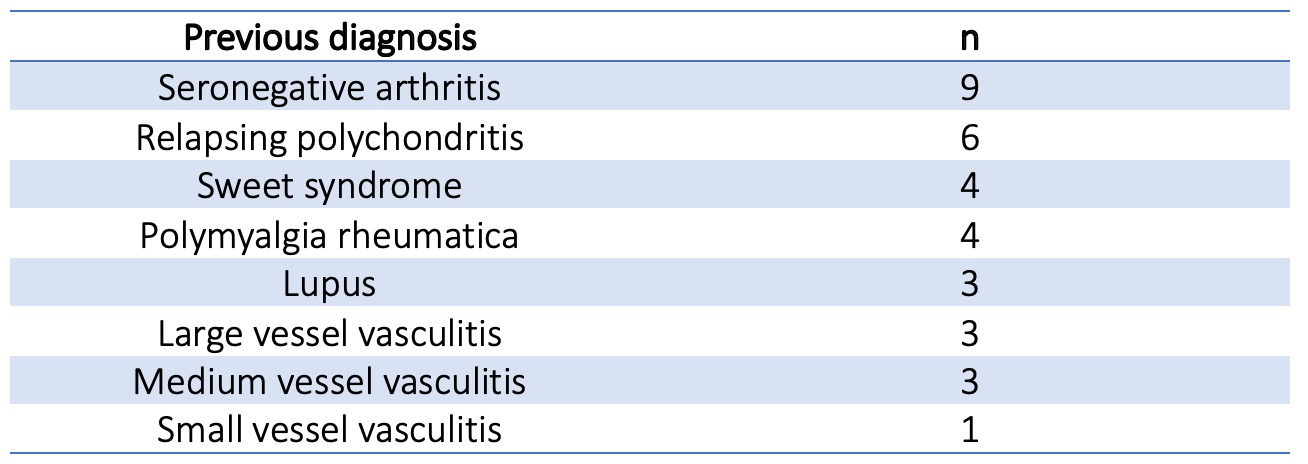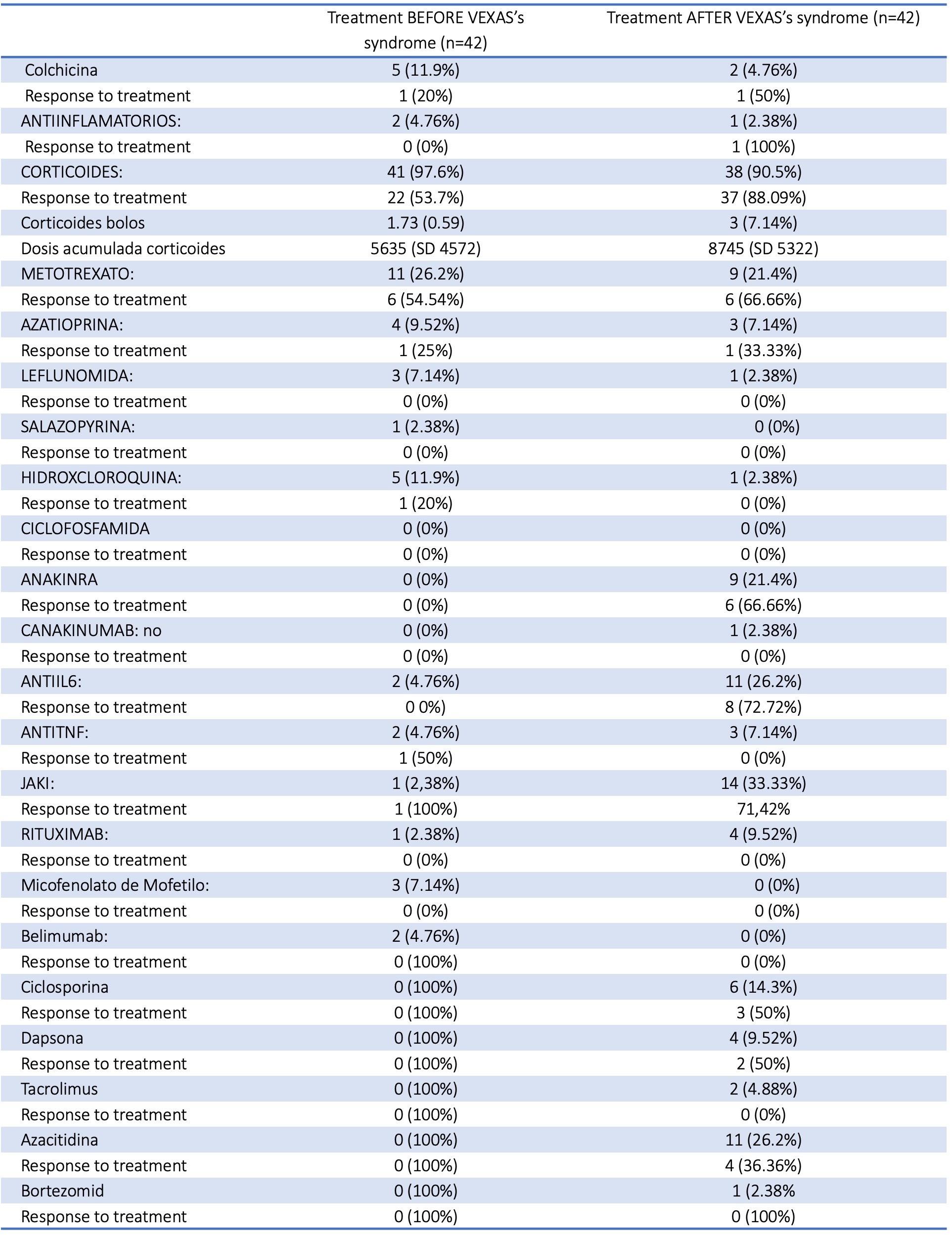Session Information
Session Type: Poster Session C
Session Time: 10:30AM-12:30PM
Background/Purpose: Nearly four years since its characterization, management and therapeutic algorithms for VEXAS syndrome remain unclear. This study aims to describe treatment approaches and assess their effectiveness in a Spanish cohort.
Methods: A retrospective, multicenter study was performed across all 126 hospitals with rheumatology units in Spain. Patients diagnosed with VEXAS syndrome characterized by a clinical presentation compatible with a UBA1 gene mutation and/or presence of vacuoles in bone marrow were included. Data on demographics, prior diagnosis, previous and current treatments, and outcomes were collected. Statistical analyses were conducted using standardized tests.
Results: Forty-two patients were included, with an average age at diagnosis of 71.55 years (SD ±14.28) and symptom onset at 66.12 years (SD ±14.27). Median time from symptom onset to diagnosis was 5 years, and to rheumatology referral was 1 year.
Initial diagnoses prior to VEXAS syndrome are detailed in Table 1, with the most common being seronegative arthritis and relapsing polychondritis. These prior diagnoses influenced the utilization of conventional DMARDs as methotrexate, leflunomide, or hydroxychloroquine usually indicated in these settings, with poor response rates. Other treatments administered at this stage are summarized in Table 2. Following confirmed diagnosis, there was an increased use of IL-1 inhibitors, IL-6 inhibitors, and JAK inhibitors. Among patients treated with IL-1 inhibitors, anakinra (n=9) showed improvement in 66.67% of cases, while no improvement was noted in the patient treated with canakinumab. Seventy-two point seventy-two percent of patients treated with IL-6 inhibitors (all tocilizumab) experienced improvement, as did 71% of those treated with JAK inhibitors. However, none of the patients treated with anti-TNF therapy (n=3) showed improvement. Only 12 patients were treated with hypomethylating agents, 11 with azacitidine and one with bortezomib, showing low response rates. Additional information regarding previous and current treatments is summarized in Table 2. Glucocorticoids are overall the most widely used therapy, with a previous response rate of 50% before VEXAS syndrome diagnosis, increasing to over 80% after its proper diagnosis, likely due to the use of higher doses.
Conclusion: In conclusion, misdiagnosing VEXAS syndrome as other conditions such as seronegative arthritis or relapsing polychondritis led to the use of conventional DMARDs that seemed to be ineffective in this particular cohort. However, treatment with IL-1, IL-6, and JAK inhibitors showed promising results.
To cite this abstract in AMA style:
López I Gómez M, García Escudero P, Magallanes López B, García Dorta A, Frade-Sosa B, Sallés Lizarzaburu M, Rúa-Figueroa Í, Fiallo Suárez D, Toyos Sáenz de Miera F, Melero-Gonzalez R, Dios Santos D, Miranda J, Garcia Belando C, Boselli G, Boteanu A, Corrales Selaya C, sieiro santos c, Díez Álvarez E, Font J, Riera Alonso E, Trallero Araguás E, Enríquez Merayo E, Rodriguez-Laguna M, monjo i, Vázquez Gómez I, Vela-Casasempere P, Merino C, Ibáñez Martínez M, Hernández Beriain J, RUIZ ROMAN A, Calvo-Alén J. Therapeutic Insights in VEXAS Syndrome from a Multicenter Study in Spain: Moving Towards Amore Specific and Effective Treatment [abstract]. Arthritis Rheumatol. 2024; 76 (suppl 9). https://acrabstracts.org/abstract/therapeutic-insights-in-vexas-syndrome-from-a-multicenter-study-in-spain-moving-towards-amore-specific-and-effective-treatment/. Accessed .« Back to ACR Convergence 2024
ACR Meeting Abstracts - https://acrabstracts.org/abstract/therapeutic-insights-in-vexas-syndrome-from-a-multicenter-study-in-spain-moving-towards-amore-specific-and-effective-treatment/


